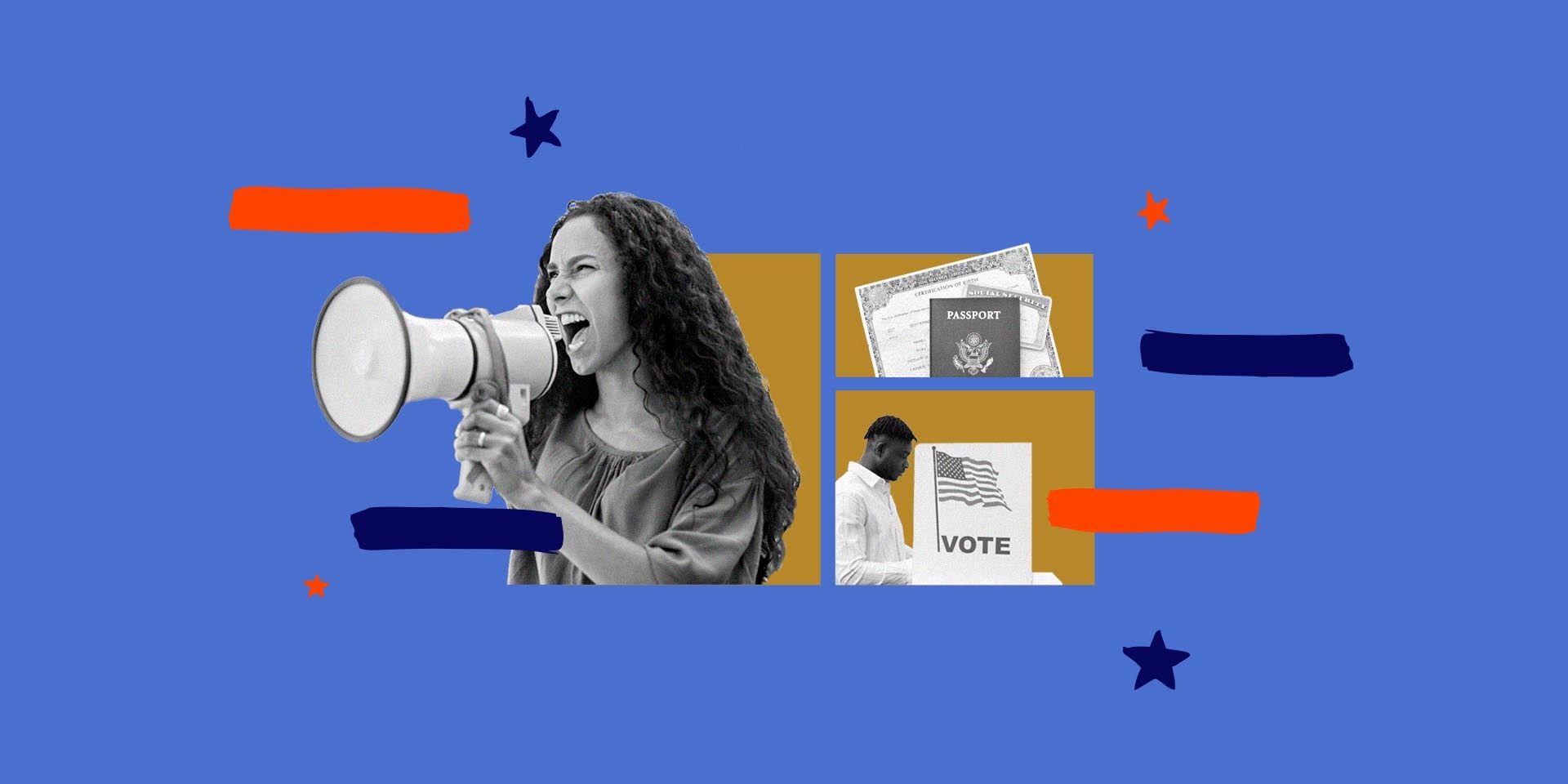The right to vote is a cornerstone of democracy; it safeguards all other rights. Yet recently we have witnessed systemic assaults to voting on several fronts.
Last month, President Donald Trump issued an executive order that unilaterally aims to upend voting as we know it. If implemented by the U.S. Election Assistance Commission, the order would effectively disenfranchise millions of eligible citizens and severely burden election administration across the country. The following are the most onerous provisions:
- Requiring citizens to show a passport or similar document proving citizenship if registering to vote through the national mail voter registration application.
- Applying this documentary proof of citizenship requirement to military and overseas voters along with an extra hurdle of proving in which state their votes should count.
- Penalizing states that count mail ballots arriving after Election Day, which currently includes 18 states and the District of Columbia.
- Decertifying states’ voting systems within 180 days while imposing unnecessary and costly new requirements for voting machines.
- Granting the Department of Government Efficiency and the Department of Homeland Security full access to individuals’ sensitive information in state voter files and voter list maintenance records.
Earlier this month, the Southern Poverty Law Center sent a letter on behalf of Common Cause, a nonpartisan group dedicated to upholding democracy, to the Election Assistance Commission. We urged the commission not to implement the unlawful executive order.
9%portion of eligible voters for whom proof of citizenship could block access to the ballot box for lacking passports or similar underlying documents
First, the commission is a bipartisan independent agency that is not subject to the president’s direction. In other words, the order exceeds the scope of the president’s authority. Second, the order attempts to usurp Congress’ role in the regulation of the times, places and manner of federal elections. Finally, the executive order directs the commission to take actions that would violate federal law, which the president cannot do.
This order flies in the face of democracy in tandem with the Safeguard American Voter Eligibility (SAVE) Act, which incorporates some of its oppressive features, namely the requirement to provide documentary proof of citizenship to register to vote. While the U.S. House of Representatives just passed the SAVE Act, the Senate could stop this monstrous voter suppression tool in its tracks. The act mirrors what we are seeing in state legislatures as well.
According to the Brennan Center for Justice, between 2021 and 2024, states passed a total of 79 restrictive voting laws, which is almost three times the number of restrictive laws passed between 2017 and 2020, a period that saw 27 such laws passed. It’s more than four times the total of such laws passed between 2013 and 2016, which saw 17 such laws passed.
Documentary proof of citizenship requirements and restrictions to mail ballots have gained especially significant traction. Proof of citizenship could block over 9% of eligible voters from the ballot for lacking passports or similar underlying documents — a disproportionately high number of whom are voters of color, young people and married women who changed their last names. Proposals for documentary proof of citizenship and restrictions to mail ballots at both state and federal levels have always been predicated on debunked, yet still prevalent, false narratives about voter fraud.
Despite these chaotic times, there is ample reason for hope. Courts have issued injunctions to several executive orders, reminding us that in the United States, a president cannot rule by fiat. Whether we use legal avenues to call out injustice, voice concerns directly to legislators or join protests across the country as millions did earlier this month, a collective energy has emerged to get into “good trouble” in the spirit of the late civil rights icon John Lewis, and speak truth to power.
Sabrina Khan is a senior supervising attorney on the democracy and voting rights team at the Southern Poverty Law Center.
Image at top: Photo illustration by the SPLC.



